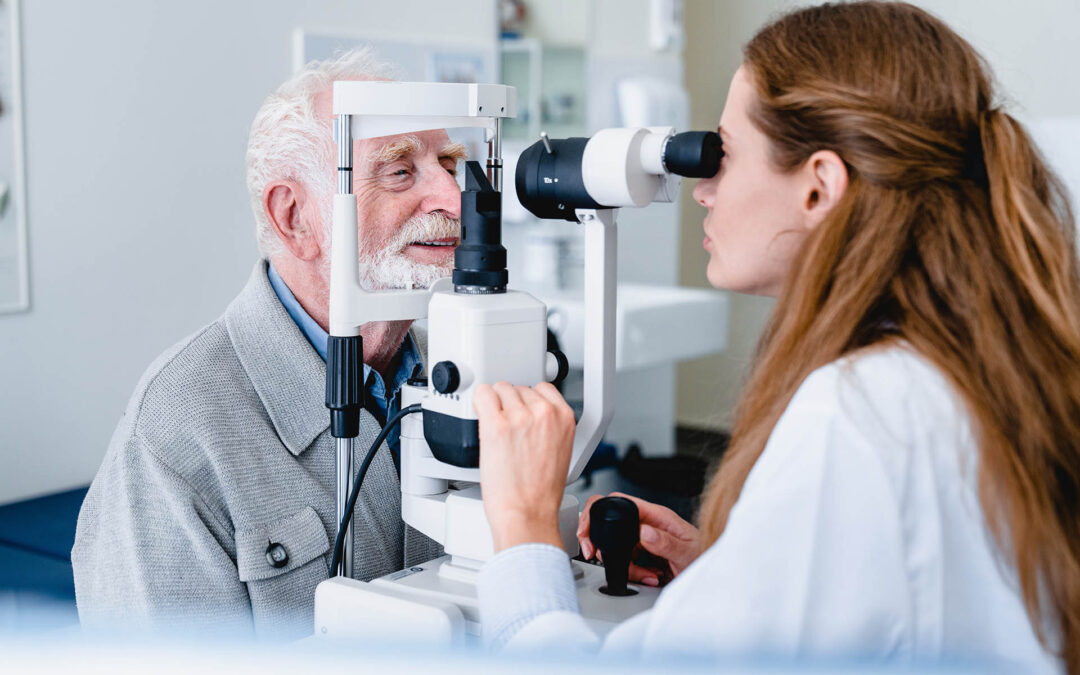Picture this: A grandfather sits on his porch, watching his grandchildren play in the yard. He smiles as they run back and forth, laughing and chasing a ball. But when the ball rolls past the edge of his vision, he doesn’t see it — and doesn’t notice the child running after it until it’s too late.
This could be a sign of glaucoma, a condition that sneaks up quietly, often with no symptoms until irreversible vision loss has occurred. The reality is, glaucoma doesn’t just steal sight; it takes away moments like this; moments we cherish.
As January marks Glaucoma Awareness Month, it’s the perfect time to prioritize your eye health and make regular exams part of your routine.
Glaucoma: The Silent Thief of Sight
Glaucoma is one of the leading causes of blindness worldwide, yet it remains one of the most misunderstood eye conditions. Unlike many diseases, glaucoma progresses without pain or warning, often going unnoticed until significant damage has been done.
But what exactly is glaucoma? This condition damages the optic nerve, the part of your eye that sends visual information to your brain. Most often, this damage is caused by elevated pressure inside the eye. If untreated, the damage worsens, leading to tunnel vision and eventually, blindness.
Common Myths About Glaucoma
You might hear people say:
- “Only older people get glaucoma.” While age is a risk factor, glaucoma can affect people of all ages.
- “I’d know if something was wrong with my eyes.” Early-stage glaucoma often has no symptoms.
- “If I can still see clearly, I’m fine.” Glaucoma typically impacts peripheral vision first, so you might not notice a problem until the damage is severe.
By breaking these myths, we can encourage more people to take this condition seriously and schedule regular eye exams.
How Regular Eye Exams Make a Difference
The best way to detect glaucoma early is with a comprehensive eye exam. These aren’t your run-of-the-mill vision tests — they’re detailed, thorough assessments of your entire visual system. During an exam, your eye doctor does more than just check your prescription. They examine the health of your optic nerve, measure your eye pressure, and perform tests to detect subtle vision changes.
Early diagnosis isn’t just important — it’s life-changing. Treatments like prescription eye drops, laser therapy, or surgery can slow or stop the progression of glaucoma. Without these interventions, vision loss is permanent.
What You Can Do to Lower Your Risk
Even though some risk factors like age or family history are out of your control, there are proactive steps you can take to protect your vision:
- Stay consistent with your eye exams, especially if you’re over 40 or have a family history of glaucoma.
- Wear protective eyewear during sports or activities that could cause injury.
- Manage your overall health—conditions like diabetes and high blood pressure increase your risk.
- Listen to your eye doctor’s advice about treatment if you’re at risk or have already been diagnosed.
Taking control of your health today can make all the difference in preserving your vision tomorrow.
A Patient Story: Turning Fear into Action
One of our patients, Sarah, came to us feeling fine — she hadn’t noticed any changes in her vision. But during her routine exam, we discovered early signs of glaucoma. Sarah was surprised; she didn’t feel like anything was wrong. Thankfully, because we caught it early, she started treatment right away and has preserved her vision.
Stories like Sarah’s remind us why eye exams are essential. Glaucoma doesn’t always give you a heads-up, but a simple appointment can mean the difference between protecting your sight and losing it.
Start the Year Right: Prioritize Your Vision
January is a time for fresh starts. If it’s been a while since your last eye exam, there’s no better time to take action. Whether you’re at risk for glaucoma or simply want peace of mind about your eye health, scheduling a comprehensive exam is a small step that can have a big impact.
At OPMT, we’re here to support you. Let’s work together to keep your eyes healthy and your vision clear for all the moments that matter most.
